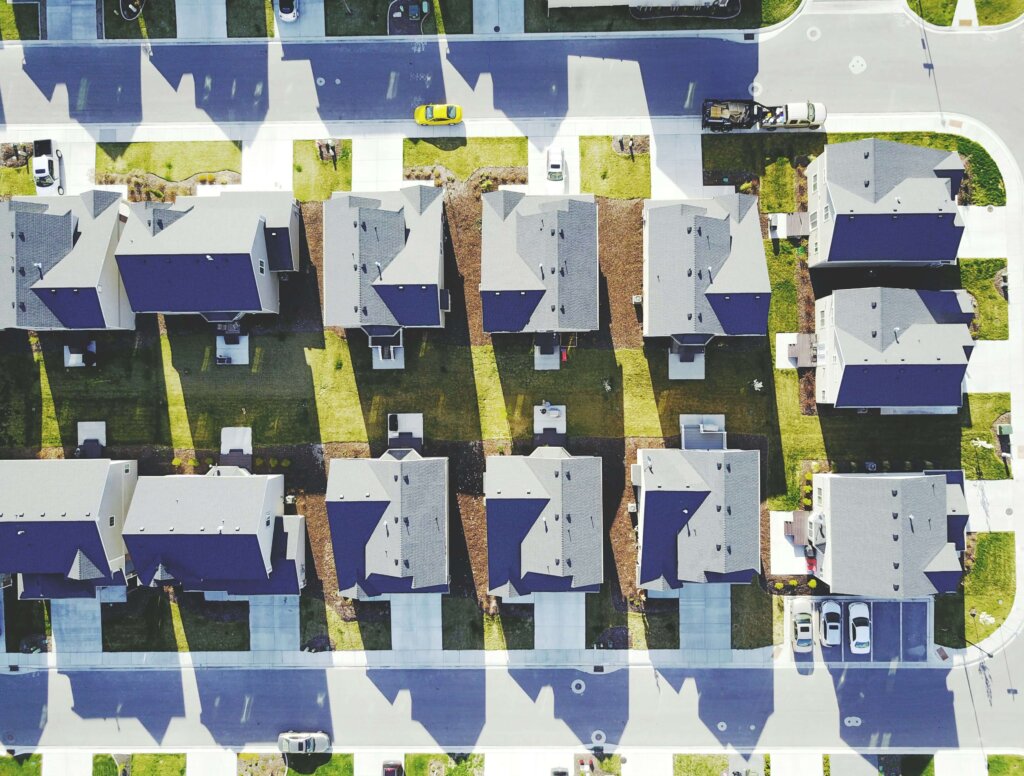Understanding property tax rates is crucial for homeowners and real estate investors alike. These rates can vary significantly by county within the Dallas metropolitan area, impacting your overall cost of homeownership or property investment. In this article, we provide a detailed breakdown of property tax rates in each county within the Dallas area, helping you make informed decisions about real estate.
Overview of Property Taxes
Property taxes are charges imposed on property owners by local governments to fund various public services, such as schools, roads, and public safety. These taxes are calculated based on the assessed value of the property and are typically expressed as a percentage of that value.
Table of Contents
Several factors influence property tax rates, including the property’s assessed value, local government budgets, and the cost of providing public services. Higher property values often result in higher tax bills, although tax rates can vary widely between jurisdictions.
Property taxes play a crucial role in funding local government operations and services. They are a primary revenue source for municipalities, counties, and school districts, supporting essential services benefitting the entire community. Understanding property taxes is important for homeowners and investors, as they can have a significant impact on the affordability of owning property in a particular area.
Dallas County Property Tax Rates

In Dallas County, property tax rates can vary depending on the city or region within the county. As of the most recent data, the average property tax rate in Dallas County is approximately 2.22%. However, this can vary significantly based on the specific location within the county.
For example, in the city of Dallas itself, the property tax rate is $0.7357 per $100 in valuation. In other cities within Dallas County, such as Irving, the property tax rate for 2024 is $0.5891 per $100 in valuation, while in Garland, it is $0.689 per $100 in valuation. These rates are all per $100 of assessed property value. [1]
Compared to the state average property tax rate in Texas, which is around 1.60%, Dallas County’s rates are slightly higher. This can be attributed to various factors, including local government budgets and the cost of providing services in the county.
It’s important to note property tax rates can fluctuate from year to year based on changes in local government budgets and property values. For the most accurate and up-to-date information, it’s recommended to contact the Dallas County Tax Office or visit their website.
Collin County Property Tax Rates
In Collin County, property tax rates vary among its top areas. The property tax rate in Frisco is 0.432205, while Plano, Allen, McKinney, and Prosper stand at 0.417600, 0.420500, 0.427513, and 0.510000, respectively.
Collin County’s property tax structure includes various exemptions, such as a 5% optional freeze, homestead exemptions ranging from $5,000 to $30,000, and an over 65 exemption up to $20,000. These exemptions provide significant tax relief for eligible homeowners.
When compared to Dallas County, Collin County generally has a lower property tax rate that stands at 2%. Nearby counties, such as Denton County and Tarrant County are also less expensive than Dallas.
Denton County Property Tax Rates
Denton County’s property tax rates also vary based on location and jurisdiction. However, the county tax rate is $0.189485 while the average home value stands at $448,754. Tax rate for the City of Denton is $0.560682 per $100 valuation and $1.1592 per $100 valuation for Denton Independent School Districts.
The Denton Central Appraisal District recently adjusted property tax assessments for homeowners in Denton County. For Denton County homeowners, property tax assessment increases in 2024 were generally consistent across different home sizes. In comparison to other counties in the Dallas area, Denton County’s property tax rates are relatively moderate.
Tarrant County Property Tax Rates
In Tarrant County, property tax rates vary significantly across the county. Edgecliff Village has one of the lowest rates at $0.251846 per $100 valuation, whereas Everman stands out with a notably higher rate of $1.036080. Forest Hill and Keller also have different rates, standing at $0.724094 and $0.312000 respectively.
Comparatively, Tarrant County’s tax rates are competitive with neighboring counties. Dallas County tends to have higher rates in its urban centers, reflecting the need for extensive infrastructure and public services. Collin County maintains moderate rates, balancing rapid suburban growth with taxpayer affordability. Denton County on the other hand generally has lower rates, especially in its suburban areas.
Overall, Tarrant County’s tax structure aims to support public services while remaining affordable for residents, making it comparable to other major counties like Dallas, Collin, and Denton.
Factors Affecting Property Tax Rates

Property tax rates are influenced by several key factors that vary from county to county. Local government policies play a significant role; municipalities with extensive public services and infrastructure projects often require higher tax rates to fund these initiatives. For instance, cities within Tarrant County with substantial public service needs or development projects may impose higher property taxes to cover these costs.
School district funding needs are another critical factor. Areas with larger or more comprehensive school systems, which demand higher budgets to maintain quality education and facilities, typically see elevated property tax rates. This is evident in many urban and suburban areas where education funding is a priority.
Economic conditions also impact property tax rates. Counties experiencing economic growth may see an increase in property values, which can lead to higher tax revenues even if the tax rate remains unchanged. Conversely, in economically distressed areas, lower property values may necessitate raising rates to generate sufficient revenue.
Property assessments are central to determining tax rates. Counties conduct regular assessments to evaluate the market value of properties. These assessments are used to calculate the amount of tax owed. Accurate and fair assessments ensure the tax burden is appropriately distributed among property owners. Variations in assessment practices and the frequency of reassessments can lead to differences in property tax rates between counties.
How to Calculate Your Property Taxes
Calculating your property taxes involves a few key steps. Here’s a step-by-step guide for homeowners:
- Determine Your Property’s Assessed Value: Your property’s value is assessed by the county appraisal district. This is typically based on the market value of your home. Each year, you will receive a notice of appraised value from your county appraisal district.
- Find the Tax Rates: Each taxing entity (county, city, school district) sets its own tax rate. For example, in Dallas County, these rates are available on the county’s tax office website.
- Combined Rate: Add up the individual tax rates to get the total property tax rate. This information is often provided in a consolidated form on your tax bill or the appraisal district’s website.
- Calculate the Taxable Value: Subtract any applicable exemptions from your assessed value. Common exemptions include homestead, senior citizen, and disability exemptions. For example, the homestead exemption in Dallas can reduce the taxable value of your primary residence by a set amount.
- Apply the Tax Rate: To calculate your property tax, simply multiply the taxable value of your property by the total tax rate. For example, if your property’s taxable value is $200,000 and the total tax rate is 2.5% (or 0.025), your property tax would be $200,000 multiplied by 0.025, which equals $5,000.
Online Tools and Resources
For Dallas area residents, there are several online tools to assist with property tax calculations:
- Dallas County Appraisal District (DCAD): Their website provides access to property values and tax rates.
- Dallas County Tax Office: This site offers a tax rate calculator and information on various exemptions.
- SmartAsset Property Tax Calculator: An online tool where you can input your property’s assessed value and get an estimate of your property tax.
Tips to Lower Your Property Tax Bill
- Apply for Exemptions: Ensure you apply for all eligible exemptions, such as homestead, senior citizen, veteran, or disability exemptions.
- Check Your Assessment: Review your property’s assessed value for accuracy. If you believe it’s overvalued, file an appeal with your county appraisal district.
- Keep Up with Changes: Stay informed about changes in tax rates and assessment procedures by attending local government meetings or subscribing to updates from your county tax office.
- Improve Property Efficiency: Some areas offer tax incentives for energy-efficient home improvements.
Conclusion
Being aware of property tax rates is crucial for homeowners, as it directly impacts your financial planning and homeownership costs. Regularly checking your specific property tax rates and staying informed about changes can help you manage your expenses more effectively.
For more personalized guidance and assistance with your property needs, consider reaching out to A List Properties. Their expertise can help you navigate the complexities of property taxes and make informed decisions about your homeownership and house selling journey in Dallas.
Additional Resources
County Tax Assessor Websites
- Dallas County Tax Office
- Tarrant County Tax Office
- Collin County Tax Office
- Denton County Tax Office
Property Tax Calculators
Frequently Asked Questions (FAQs)
1. How can I appeal my property tax assessment?
You can appeal your property tax assessment by contacting your local tax assessor’s office and filing a formal appeal. This usually involves providing evidence that your property’s assessed value is too high compared to similar properties in your area. Many counties offer online resources and step-by-step guides to assist you with the process.
2. How often do property tax rates change?
Property tax rates can change annually, typically as local governments adjust budgets and tax assessments. It’s important to stay informed about any changes in your area that could affect your property tax bill.

Zach Shelley
Zach Shelley is a seasoned real estate investor with a diverse network spanning across the nation. As the founder of his own real estate venture, Zach is committed to offering innovative solutions to homeowners facing various real estate challenges.. Through his dedication and strategic approach, Zach continues to make a significant impact in the real estate industry, providing homeowners with alternative pathways to navigate their property transactions.



